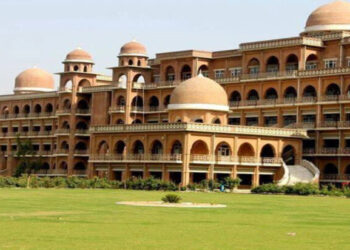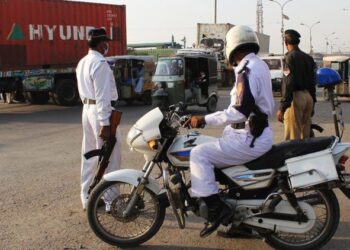Under the dynamic and visionary leadership of President Kassym-Jomart Tokayev, Kazakhstan has significantly advanced its efforts to enhance its regional and global presence. Since taking office in March 2019, Tokayev has implemented a series of strategic initiatives aimed at bolstering Kazakhstan’s influence and reputation on both regional and international stages. The most recent milestone is the successful celebration of 5th World Nomad Games Festival that celebrated the global unity and nomadic heritage.
The highly anticipated event was officially kicked off in Astana (Kazakhstan) by President Kassym-Jomart Tokayev with a spectacular opening ceremony at the Astana Arena, bringing together over 2,500 athletes and thousands of guests from 89 countries. The event was a celebration of the rich cultural heritage of nomadic civilizations and the unique sports and traditions passed down through generations.
President Kassym-Jomart Tokayev, highlighting the historical significance of nomadic cultures and their lasting legacy in shaping the world, said: “The Kazakh land is home to outstanding historical figures such as Al-Farabi and Khoja Ahmed Yasawi, who made significant contributions to the development of science and humanistic ideas. Our ancestors established powerful states and built beautiful medieval cities in the Great Steppe, including Otyrar, Turkestan, Taraz, and Saraishyk,”.
The Kazakh leader emphasized the unifying power of the nomad games, which serve not only to celebrate traditional sports but to promote global unity and mutual respect. “This is the biggest sports competition of its kind in the world. Sport itself is a symbol of respect and solidarity. Its key purpose is to strengthen friendship among nations. Kazakhstan is known to everyone as a land of peace and coexistence. Kazakhstan’s president believed that the Nomad Games will help foster international solidarity. It would be so.
The World Nomad Games are part of the UNESCO world heritage list and have grown into the largest event dedicated to traditional sports, attracting participation from nations across Asia, Europe, North and South America, Africa, and Australia. Over the course of the competition during September 9-13, athletes competed in a range of nomadic sports, including horseback archery, martial arts, falconry, and traditional wrestling, showcasing their countries’ unique cultural traditions on a global stage.
The opening ceremony was a symbol of Kazakhstan’s sports diplomacy as several distinguished international leaders and officials attended it, including Uzbekistan President Shavkat Mirziyoyev, Kyrgyzstan President Sadyr Zhaparov, Chairman of the People’s Council of Turkmenistan Gurbanguly Berdimuhamedov, Rustam Minnikhanov of the Republic of Tatarstan, and Head of the Republic of Sakha (Yakutia) Aisen Nikolayev. Other notable attendees included former Mongolian President Nambaryn Enkhbayar and President of the World Ethnosport Confederation, Bilal Erdoğan, as well as representatives from international organizations such as UNESCO, the UN World Tourism Organization, the Organization of Turkic States, and the European Union.
The evening culminated in a breathtaking cultural performance that took the audience on a journey through Kazakhstan’s rich history, from the Tengri period and the great khanates to the nation’s modern transformation. The theatrical programme paid tribute to the enduring values of harmony with nature, respect for the land, and the shared responsibility of protecting the Earth as humanity’s common home.
The World Nomad Games that included competitions in 21 sports, offered a platform for nations with shared nomadic roots and others to come together in a celebration of cultural diversity, strengthening bonds of friendship and peace through sport. The first three editions were held in Kyrgyzstan while the last one took place in Türkiye.
The 5th World Nomad Games played a crucial role in preserving and revitalizing traditional nomadic sports and practices. By showcasing these cultural elements on a global stage, the festival helps ensure that they continue to be valued and practiced by future generations.
The festival has significantly contributed to Kazakhstan’s tourism industry by attracting visitors from around the world. It has also enhanced the country’s global recognition as a center for cultural heritage and traditional sports, besides strengthening Kazakhstan’s position as a promoter of cultural diplomacy. By hosting such a prestigious international festival, Kazakhstan has demonstrated its commitment to fostering global cultural exchange and cooperation.
No doubt, the 5th World Nomad Games Festival in Kazakhstan was a resounding success, highlighting the world’s rich cultural heritage and traditional sports. Through a vibrant display of nomadic traditions, diverse sports competitions, and international participation, the festival has reinforced Kazakhstan’s role as a cultural and diplomatic hub. It stands as a testament to the enduring legacy of nomadic cultures and the global appreciation for their unique contributions to the world’s cultural tapestry. Entire nation of Kazakhstan deserves our heartfelt appreciation.
President Tokayev has been instrumental in reinforcing Kazakhstan’s role in Central Asia. His administration has focused on fostering deeper economic and political ties with neighboring countries besides the digital collaboration and cultural diplomacy. By advocating for collaborative projects and regional integration, Kazakhstan aims to create a more cohesive and prosperous Central Asian region. Initiatives such as the Central Asia Regional Economic Cooperation (CAREC) and bilateral agreements with countries like Uzbekistan and Kyrgyzstan exemplify this commitment.
The country has also been active in the Shanghai Cooperation Organization (SCO), contributing to regional security frameworks and economic cooperation. A successful SCO meeting a couple of months back speaks of President Tokayev’s prioritized regional stability and security, recognizing their critical importance for sustained economic growth. Undoubtedly, Kazakhstan has played a proactive role in addressing regional conflicts and promoting dialogue. Many things to learn from Kazakhstan including global diplomacy and economic engagement, hosting international forums and summits, proactive sustainable development and innovation to advancing green energy initiatives, and a healthy planet.
The writer is a geopolitical analyst and Director of Devcom-Pakistan. He can be reached at devcom.pakistan@gmail.com





























